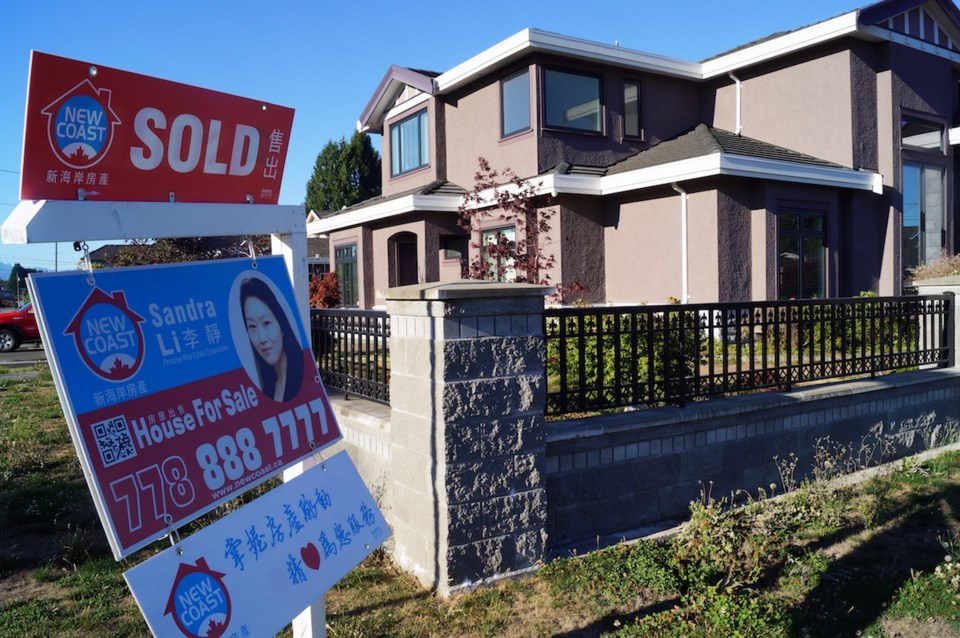After many respondents to a 2017 public survey made it clear that foreign home ownership, housing speculation and empty homes must be addressed in Richmond’s revised Affordable Housing Strategy, city planners are now recommending the municipality take on an advocacy role to senior levels of government regarding those very subjects.
However, Coun. Harold Steves sees the revised strategy, approved by council this week, as largely “our existing policy warmed over."
He added, “It’s reemphasizing what we had before.”Â
To date, foreign home ownership has been largely ignored at council level, according to Steves.
“It hasn’t really come up in council other than debates with large houses on farmland.”
Rather, noted Steves, the city’s approach has been to increase housing supply — something he doesn’t necessarily disagree with, he said.
But now, as a result of the survey, housing demand will now be acknowledged; one of the many new strategies is to “advocate to senior levels of government to implement policies and actions regarding foreign ownership, speculation and empty homes.”
The revised strategy has also increased the fees charged to developers that go to subsidized housing projects. And, apartments must now include 10 per cent built-in subsidized rental units pegged to low-income applicants, as opposed to the previous five per cent requirement.
“There’s an incremental increase in what we’re already doing, but there’s no change in direction. The change in direction is we’ve got to solve the empty houses,” Steves said.
According to the 2016 census, Richmond had 4,021 (5.7 per cent total) homes counted as “non-resident unoccupied dwellings,” which are either homes that are outright empty or ones occupied by a foreigner or temporary resident.
Foreign home ownership stands at 7.5 per cent, although since 2016, non-residents have purchased nearly one in five (19.4 per cent) of new homes, built in 2016 and 2017, including nearly one in every four condo units (23.7 per cent).
On the public survey, Richmond residents weren’t given the option to consider foreign money and speculation as a “primary focus” for the City of Richmond; only supply measures were listed. However, in the “other” comments section, about one third (17/52) of respondents specifically noted foreign investment and speculation as something the city should address.Â
“Advocating to the provincial and federal governments to restore oversight and controls for the unchecked wealth that is inflating Vancouver’s housing market,” wrote one respondent.
“What about addressing demand?” wrote another respondent.
Taking measures to curb foreign home ownership and speculation is now widely accepted by British Columbians.
According to a recent Insights West poll, more than 80 per cent of B.C. residents thought new budget measures such as a speculation tax and an expanded, increased foreign home buyers’ tax was either a “very good” or “good” idea.
Last week, as reported by the National Post, even Royal Bank of Canada CEO David McKay weighed into the foreign money in Metro Â鶹´«Ă˝Ół»housing fray: “If capital is coming in to sit in a home, unproductively, and is distorting your marketplace and the livelihood of your residents — no thank you,” said McKay, the head of Canada’s largest mortgage lender who added he’s supportive of policies to cool the housing market.
The Union of B.C. Municipalities has also advocated to address speculative demand in the housing sector.



